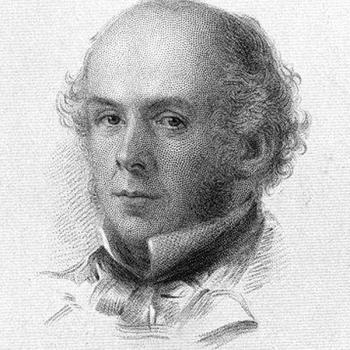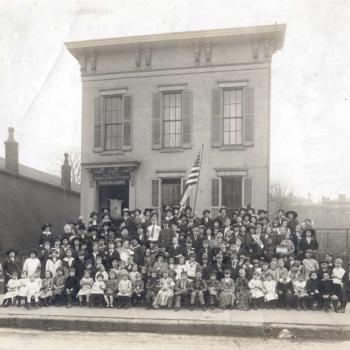What follows is a book review of Zena Hitz’s Lost in Thought: The Hidden Pleasures of an Intellectual Life (Princeton University Press, 2020). In my opinion, it is one of the finest defenses of the intrinsic value of liberal education to appear in quite awhile. The review was originally published in Touchstone magazine (Summer, 2021).
***
Even before the depredations and indignities of Covid slouched into our lives, American colleges and universities were in a bad way. Leaving soaring tuition and unconscionable levels of student debt aside, progressives have felt that they’ve sold their souls to “neoliberalism,” peddling status and prestige, engorged with inflated rhetoric, and beholden to the bottom line, while conservatives have decried unhinged “wokeness”: lefty professors and diversity bureaucrats forever sniffing out “microaggressions” and enabling “cancel culture.”
Both criticisms perhaps contain elements of truth, but the canker might be deeper still: an ingrained inability, in schools and society at large, to articulate compellingly why education matters in the first place and what visions of human flourishing best nourish it. Offering considered, bracing, often passionate answers to both questions is the upshot of Zena Hitz’s Lost in Thought: The Hidden Pleasures of an Intellectual Life. A committed Catholic, Hitz wears her faith lightly throughout in an effort to reach a wide audience.
Trained in ancient philosophy, a wounded lover of the university as it now stands, Hitz yawns at modern educational theorists, drawing inspiration instead from Plato, Aristotle, and Augustine, among others, to argue unapologetically that serious learning—the life of the mind, the examined life, the vita contemplativa—pulses with intrinsic value; it is right and good and beautiful in and of itself apart from whatever instrumental uses to which it might be put.
Cognoscenti will detect a version of an older argument: a defense of the superiority of the artes liberales—the kinds of “useless” learning (art, philosophy, history, literature) that free our minds and souls—over the artes serviles—the training necessary for specific jobs that provide useful functions in society. To a certain degree, Hitz’s stance mirrors this argument, but the book actually, perhaps in part unwittingly, complicates the distinction between the intrinsic and the instrumental by redefining the latter and ordering it to the goods necessary for a dignified, soulful life shared meaningfully with others.
Admittedly, Hitz plainly states that she is defending the “intrinsic value of learning,” its worth apart from any “visible or outward results.” Yet throughout she’s keen to show the myriad salutary results derived from serious learning, arguing that it is “fundamental to human happiness, as far from pointless wheel spinning as are the forms of tenderness we owe our children or grandchildren.” Still, the right sequence and a kind of paradox stand at the heart of her vision: “If intellectual life is not left to rest in its splendid uselessness, it will never bear its practical fruit.” The skill of an Olympic swimmer, one might analogize, might be put to many uses, but these should not cloud our ability to see the grace and beauty of the thing itself.
What, then, are the practical fruits of splendid uselessness?
For starters, the demands of serious learning can puncture what Iris Murdoch once called “the fat, relentless ego” or what theologians sometimes speak of as homo incurvatus in se, the person curved in upon himself—that calculating inner Gollum in us all. The time and discipline necessary to encounter a world outside our heads, Hitz avers, can chip away at “the hard accretions of wishful thinking” harbored by every individual. “Everyone with even a passing interest in the life of the mind has felt the collision with reality,” she elaborates; “the term paper begins with dreams of academic conquest and ends in lowly entanglements with the real problems the topic presents.” Struggling with these problems can in turn induce a salutary humility, a mental sobriety, helping us confront one of life’s most fundamental lessons: “reality is not up to us.”
Cultivating an intellectual life, moreover, helps ordinary people from various backgrounds gain a sense of dignity and worth. Hitz reminds toffee-nosed critics that the great books movement was for and significantly embraced by members of the working class. And she makes nice use of Jonathan Rose’s delightful The Intellectual Life of the British Working Classes (2001) to disabuse readers of the notion that only elites care about the questions of liberal education. “The coloured world flashed out and entranced my fancy,” she conveys one laborer’s encounter with Tennyson’s poetry; “they drew pictures in my mind. . . . My dormant imagination opened like the sun.” Do the educated, Hitz seems to whisper throughout the book, habitually underestimate the rich capacity for reflection among those who repair their cars and ring up their groceries?
Further, artfully drawing from Mona Achache’s 2009 film The Hedgehog, Hitz recounts how three unlikely characters—Renée (a pedestrian, middle-aged cleaning woman), Paloma (a suicidal twelve-year-old), and Kakuro (a wealthy Japanese man living in the building where all three live)—come together around shared intellectual pursuits, making “connection with one another at the depths” and not on the basis of wealth, status, or trivialities. These sorts of deep friendships—the opposite of those defined by Aristotle as based on utility alone—enrich our inner lives, enhance our capacities for communication, and create the conditions of possibility for mature, lasting relationships.
The biographies of Malcolm X and Primo Levi lead Hitz to expostulate on how serious learning can preserve our humanity and help us envision a more just society amid degrading political circumstances. Embittered at first by his imprisonment, Malcolm X reflected later that it was a “blessing in disguise,” providing him with the “solitude” and “meditation” necessary to mature intellectually. The study of physics and chemistry helped Levi, a Holocaust survivor, to keep in mind the intellect’s capacity to apprehend genuine truths; scientific experiments were for him “the antidote to Fascism . . . because they were clear and distinct and verifiable at every step, and not a tissue of lies and emptiness, like the radio and newspapers.”
Hitz is no naïf. She recognizes that genuine learning can be rare and takes time, resolve, and discipline. It must also contend against the darker angels of our nature—the desire for status, political opportunism, disordered ambition, snobbery, avarice, and sloth. In a chapter entitled “Learning Lost and Found,” she catalogs some of these obstacles, admitting their seductive nature—some even capable of debasing education in the name of promoting it—before suggesting that redemption is possible even if we sometimes must be driven to the extremity of ourselves to discover it. We are, furthermore, often dependent on the charity and guidance of others: wiser heads, teachers, who have gone before us. In fact, teaching others, whether one is a professional teacher or not, is the “loving service” that we all owe to others, according to Hitz.
How central is this service and the learning on which it is based in the overall economy of human existence? Hitz equivocates. On the one hand, she insists that it is one good among others: “Intellectual work is a form of loving service at least as important as cooking, cleaning, raising children; as essential as the provision of shelter, safety, or health care; as valuable as the delivery of necessary goods and services, as crucial as the administration of justice.”
But on the other hand, in step with traditions pointing back to Neoplatonism and medieval scholasticism, she suggests that intellectual pursuits, the ardent search for truth and meaning, put us luminously in touch with our deepest selves, perhaps hinting at the transcendent dimensions and ends of human life even amid our recalcitrant immanence and everyday concupiscence. Hitz is not heavy-handed with this point, and in fact she can be mischievously coy: “Contemplation,” she writes early on in the book, “is a robust good. . . . Its degree of centrality in a given human life I leave up in the air. . . . [But] sometimes my own enthusiasms will draw my thumb to the scale.”
I must confess that I was smitten with that sentence.
Exactly how our institutions of higher learning will emerge from Covid is anyone’s guess. There’s sound reason for pessimism—and this book offers no practical recovery plan. But if in our protracted, plague-enforced solitude, educators and students find time to ponder Hitz’s cri de coeur, flourishing cannot be guaranteed, but abandoning hope most certainly must be ruled out.
















